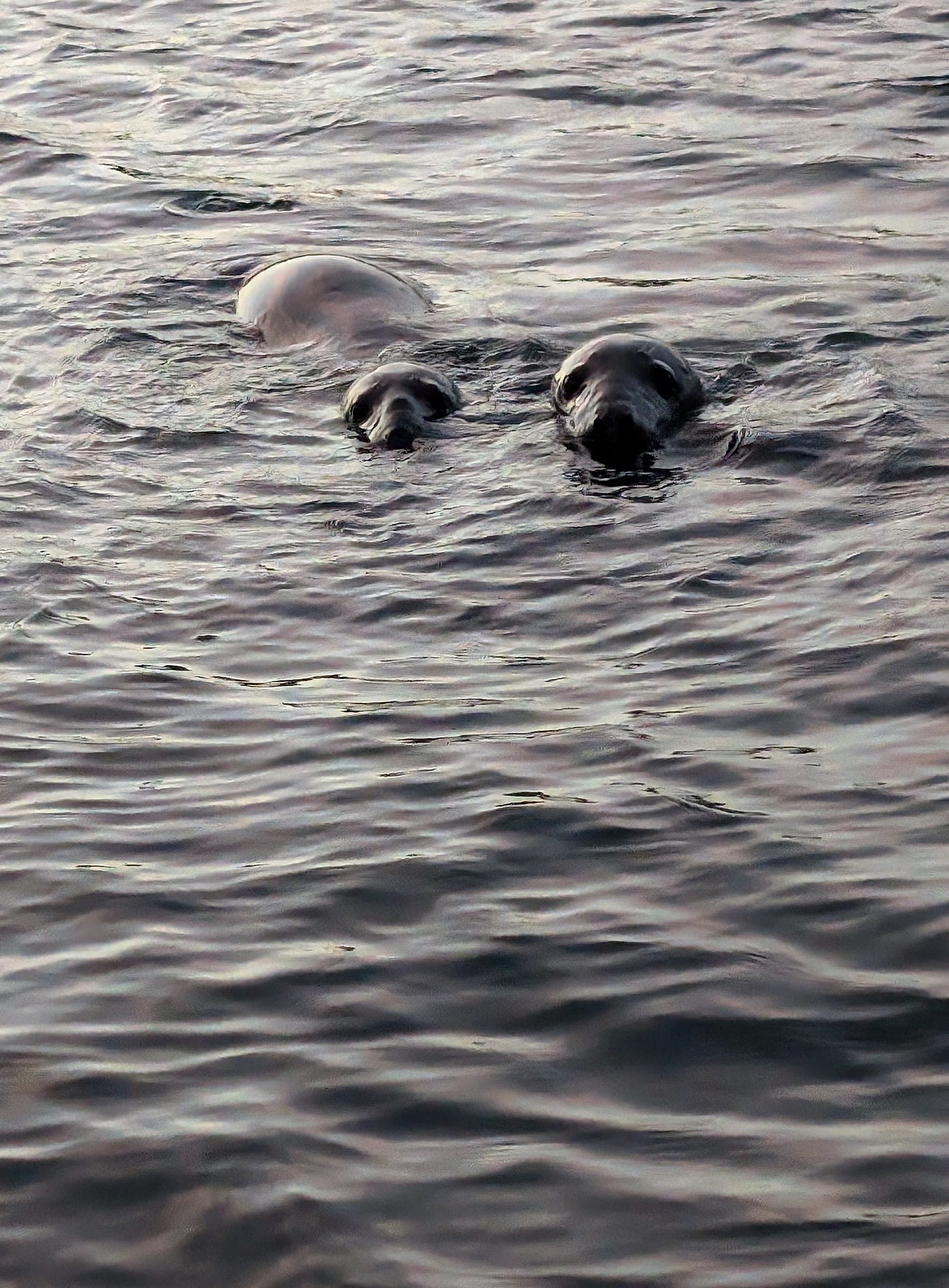The friends that have it I do wrong
Whenever I remake a song,
Should know what issue is at stake:
It is I myself that I remake.1
William Butler Yeats
The year is winding down. There are long years. Time slowed during this one. I believe I willed it to slow so that I might hold Gladys longer than my heart could bear. Maybe I hoped the old heart would give out before crossing into the first year without her. Maybe I only wanted to stay further losses. I don’t know. But the heart beats on, and lately, time has gathered pace. There are surprising days when I seem to be barrelling toward new unknowns.
On bad days, I think I am too old for this. I’m carrying this punishing year. It’s too hard. On good days, I think oh what new places, people, walks, writings, adventures, campaigns might come. It’s not only that the heart beats stubbornly. It’s loving life too much to allow the bad days to win. All my loving, to steal from a song, I will give to life. The restless child crouched inside relishes change and the unceasing realization, in both senses of the word – to become aware of, and to bring about - one’s own multitudes. Yes, this is to recall another old poet.2 But because I require a booster shot of courage for the next round of change and upheaval, it is Yeats who speaks this morning. Myself I must remake.
So much for the inside. The internal storms. I walk them off little by little, every day along the coastal paths. “I can’t be a pessimist…,” James Baldwin whispers still, “because I am alive.” I hear too the waves breaking alongside my footsteps. I pause to watch two seals play together in the shallows, stopping only to fix an inquisitive gaze on this lone human before them.
Why does she stand there on dry land, thinking about the lines of dead poets? She’s remaking herself again, one tells the other, in gentle bumps. Don’t worry. She’s inside, but she’s working her way out. One last glance at the poor human, then they dip below the surface to glide away.
Inside, working my way out. Multitudes and remakings. But outside, oh outside. The world rains and gusts with bad news. People chased away and knocked to the ground. Even the books and verses by poets are bombed, derided, or forbidden. Children die before ever reading a line or glimpsing their futures. Their remakings. The threats to life and justice are now so urgent – so near and so far - as to make it impossible for one person to look away, remain inside, or dwell too long on her private multitudes.
We’re thinking about solidarity – what it means, where we find it, how to practice it. How it feels to need it. How it feels to give and receive it; how it feels not to give or receive it too. Solidarity in all its guises is, at this very moment, attempting to pierce our hearts and slip into our dreams at night. It is knocking at our doors, tapping the windows, following us down the winding roads to town, echoing our footsteps. I am here, I am here if only you will turn around.
Solidarity sits accusingly beside our lawmakers as they exercise power no person should possess. It watches cruel men and idiots rule over the ones who are not there to speak for themselves. Solidarity swirls to nothing in the currents of the English Channel. It waits in vain in Benefits offices and at border crossings. It swims the Rio Grande. In Gaza, it runs from bombs and drones and snipers, stomach gnawing. Solidarity seeks to board trains and airplanes crossing continents and oceans. It is in the eyes of those playful seals, for they too are threatened. Solidarity runs from fires and floods and conflicts. And it digs many graves, scattering the mourners before they can grieve.
Solidarity is a singular abstract noun. Power wishes to keep it so. But we know it is plural and actual. It is a project. A reminder that we are not alone. It runs through our self-remakings and finds company in the remakings of others. The times are hard. Ourselves. We remake.
This was Yeats’s reply-in-verse when friends complained about his constant revising. The idea also appears in his 1936 poem, An Acre of Grass.
Song of Myself, 51 by Walt Whitman - Poems | Academy of American Poets
The past and present wilt—I have fill'd them, emptied them.
And proceed to fill my next fold of the future.
Do I contradict myself?
Very well then I contradict myself,
(I am large, I contain multitudes.)



